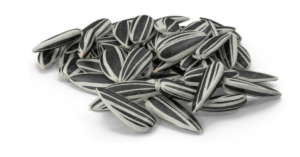Introduction
Mulberries, often considered nature’s candy, are small fruits that grow on trees belonging to the Morus genus. These fruits come in various colors, from white and red to deep purple, depending on the species. Mulberries are known for their juicy, sweet taste and their significant health benefits. They are rich in vitamins, antioxidants, and other nutrients that can contribute to a healthier lifestyle. In this article, we explore the different types of mulberries, their nutritional profile, and their many health advantages.
Table of Contents
Types of Mulberry Fruit
Black Mulberries (Morus nigra)
Black mulberries are perhaps the most well-known type, boasting a rich, tart flavor. They are commonly used in jams, jellies, and desserts. Black mulberries are highly nutritious and are considered the most beneficial for health due to their high levels of antioxidants.
Red Mulberries (Morus rubra)
Red mulberries are native to North America and have a sweet yet slightly tart taste. They are often eaten fresh or dried and are also rich in vitamins and minerals.
White Mulberries (Morus alba)
White mulberries are native to China and are commonly used in traditional Chinese medicine. These mulberries are sweeter than their black and red counterparts and are often dried for use in snacks and teas.

Nutritional Value of Mulberries
Macronutrients
Mulberries are relatively low in calories but packed with important macronutrients like carbohydrates, protein, and fiber. A cup of raw mulberries contains around 60 calories, making them an excellent snack for those watching their caloric intake.

Vitamins and Minerals
Mulberries are a great source of vitamin C, which boosts the immune system, and vitamin K, essential for blood clotting. They also contain iron, potassium, and calcium, all of which contribute to overall health.
Antioxidants
Mulberries are rich in antioxidants such as resveratrol, anthocyanins, and vitamin E. These compounds help fight oxidative stress, reduce inflammation, and lower the risk of chronic diseases like heart disease and cancer.
Health Benefits of Mulberry Fruit
Boosts Immune System
The high vitamin C content in mulberries supports immune health, helping the body fight infections and illnesses.
Supports Heart Health
Mulberries help reduce cholesterol levels and improve circulation, which benefits heart health. The antioxidants in mulberries, such as resveratrol, also help lower blood pressure.
Aids Digestion
Mulberries are rich in dietary fiber, which aids digestion and helps prevent constipation. The fiber in mulberries also promotes gut health by supporting beneficial bacteria.

Enhances Skin Health
The antioxidants in mulberries, particularly vitamin E and resveratrol, contribute to healthy skin by fighting free radicals and slowing the aging process. Mulberry extracts are often used in skincare products to improve skin tone and texture.
Anti-aging Properties
Mulberries contain resveratrol, a potent antioxidant that combats signs of aging. Regular consumption of mulberries may help reduce wrinkles and fine lines, promoting a youthful appearance.
Mulberries in Traditional Medicine
Chinese Medicine
In traditional Chinese medicine, mulberries are used to treat anemia, fatigue, and premature graying of hair. The fruit is also believed to nourish the blood and liver.
Ayurvedic Uses
In Ayurveda, mulberries are used to balance Pitta dosha and improve digestion. They are also used to boost energy and treat respiratory conditions.
Mulberry Fruit in Modern Diets
Raw vs. Dried Mulberries
Raw mulberries are often eaten fresh as a snack or added to salads. Dried mulberries are a convenient option for a quick, nutritious snack and can be added to trail mixes or cereals.

Smoothies, Juices, and Desserts
Mulberries are an excellent addition to smoothies, juices, and desserts, offering a sweet and nutritious boost. Their natural sweetness means you can often reduce added sugars in recipes.
Side Effects and Considerations
Potential Allergies
While rare, a few people might be allergic to mulberries. Symptoms of a mulberry allergy may include itching, swelling, or difficulty breathing. It is necessary to consult with a health specialist if you suspect an allergy.
Drug Interactions
Mulberries may interact with certain medications, especially blood-thinning drugs, due to their vitamin K content. Consult a healthcare provider before consuming large amounts of mulberries if you are on medication.
Safe Consumption
Mulberries are generally safe to eat in moderation, but overconsumption can lead to digestive issues due to their high fiber content.
How to Incorporate Mulberries into Your Diet
Recipes
Mulberries can be added to smoothies, oatmeal, yogurt, and salads. They can also be baked into pies, muffins, and other desserts.
Snacks
Dried mulberries are a perfect on-the-go snack, rich in nutrients and low in calories. They are also available as mulberry powder, which can be added to protein shakes and smoothies.
Supplements
Mulberry extracts and powders are available as supplements, offering a concentrated dose of their health benefits.

Mulberry Leaf and Bark Benefits
Herbal Remedies
Mulberry leaves are used in herbal remedies to treat conditions like high blood sugar and inflammation. They are rich in bioactive compounds that promote health.
Tea Uses
Mulberry leaf tea is popular for its potential benefits in managing diabetes and lowering cholesterol levels.
Environmental and Economic Impact
Sustainability of Mulberry Cultivation
Mulberry trees are hardy and require minimal resources, making them environmentally sustainable. They are grown worldwide for fruit and leaf production.
Economic Benefits
Mulberry cultivation supports many industries, including textiles (silk production) and food, providing economic benefits to rural communities.
Mulberries and Blood Sugar Control
How Mulberries Help with Diabetes
Mulberries help regulate blood sugar levels by slowing down the absorption of sugars in the intestine, making them beneficial for people with diabetes.
Scientific Research
Research indicates that mulberries may help prevent spikes in blood sugar levels, making them a potential natural remedy for managing diabetes.

Mulberry Fruit for Weight Loss
Low-Calorie Content
Mulberries are low in calories but high in fiber, making them a great addition to a weight-loss diet. They keep you feeling full for longer, reducing the urge to snack on unhealthy foods.
Fiber and Satiety
The high fiber content in mulberries aids digestion and promotes satiety, helping to control appetite and support weight loss efforts.

Expert Insights
Nutritionists and health experts highlight mulberries as a powerful source of antioxidants and nutrients. They recommend including them in a balanced diet for their numerous health benefits.
Future of Mulberry Research
Emerging research is exploring the potential uses of mulberries in medicine, especially in managing diabetes and heart disease. Ongoing studies may reveal even more health benefits in the future.

Alphonso: The King of Mangoes

Defeating Infertility like a Pro

How to Use Sunflower Seeds for Weight Loss and Better Nutrition?

Peeling Back the Secrets of Mandarin Oranges and Their Incredible Powers

The Unspoken Realities of Abortion Experiences

Surprising Health Benefits of Eating Mandarin Oranges Every Day
Conclusion
Incorporating mulberries into your diet is a delicious and easy way to improve your health. Whether eaten fresh, dried, or in supplement form, these tiny fruits pack a powerful nutritional punch. From boosting your immune system to supporting heart health and managing weight, mulberries offer a wide range of benefits that make them a superfood worth adding to your routine.
Frequently Asked Questions (FAQs)
Yes, mulberries are low in calories and high in fiber, making them a great option for those looking to lose weight.
Mulberries may help regulate blood sugar levels by slowing the absorption of sugars, making them beneficial for people with diabetes.
While mulberries are generally safe, overconsumption can cause digestive issues, and some individuals may experience allergic reactions.
Mulberries can be eaten fresh, dried, or in smoothies, juices, and desserts. They are easily available in supplement form.
Black mulberries are known for their tartness, red mulberries are sweet yet slightly tart, and white mulberries are the sweetest, often used in traditional Chinese medicine.

10 Proven Benefits of Bananas for Health and Well-being
Bananas are known for their natural sweetness, ease of peeling and rich nutrition. This makes them one of the most commonly consumed fruits in the world. Though bananas originated in Southeast Asia, they are now

Disease X: The Next Pandemic?
Emerging infectious diseases pose one of the greatest threats to human health and global stability. One of them, “Disease X” has intrigued scientists and WHO, as it represents the potential for an unknown disease to

The Remarkable Benefits of Eating Acorn Squash in Winter
Acorn squash has all the qualities that make it special. Winter calls for warmth, comfort, and nutrition, and acorn squash provides all of these. This vegetable is not just delicious but also has a lot

Omega-3 Fatty Acids
Omega-3 fatty acids play a very important role in the nutrients needed to maintain overall health. As people are getting to know about it, its popularity is increasing day-by-day. These fats play a very important